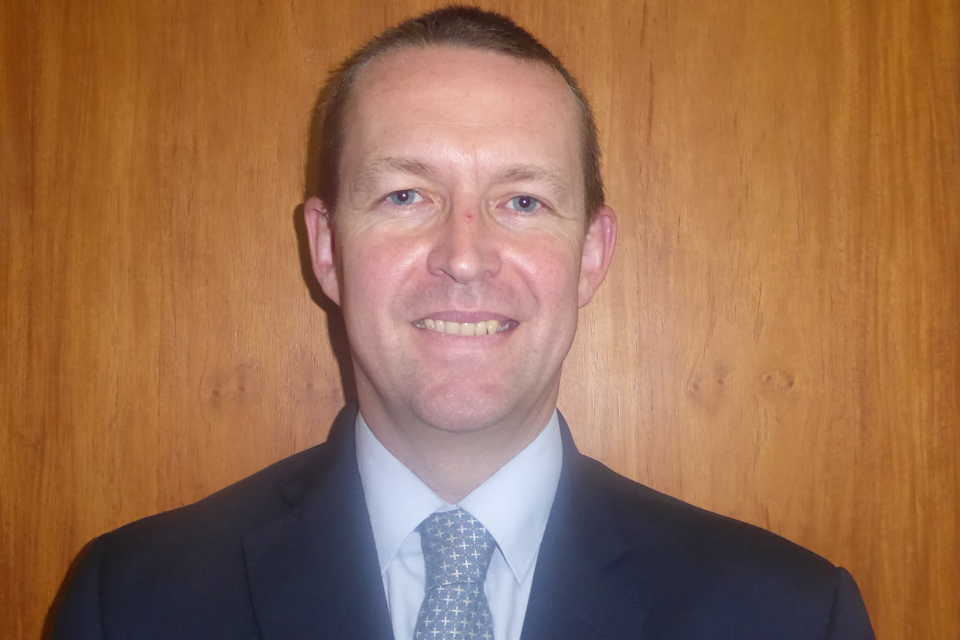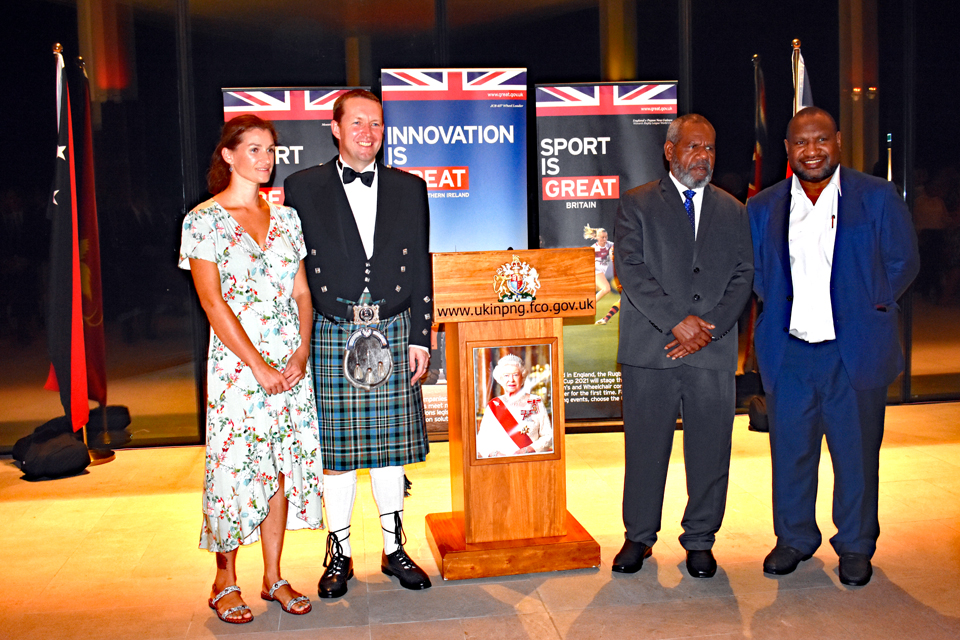Queen's birthday celebration 2019 in Papua New Guinea: speech by Keith Scott
British High Commissioner to Papua New Guinea, Keith Scott gave a speech to celebrate The Queen’s 93rd birthday.

Thank you all for coming this evening to celebrate the 93rd birthday of Her Majesty Queen Elizabeth II and to mark what is effectively the United Kingdom’s national day. It is fitting too, given the Queen’s international role as Head of the 53-nation Commonwealth, that we are in APEC Haus, itself a symbol of Papua New Guinea’s own increasing international profile after its successful hosting of the APEC Summit last year.
The Queen has been on the throne for over 67 years. She is the United Kingdom’s longest reigning monarch. Her first British Prime Minister was Sir Winston Churchill. She has also been Papua New Guinea’s Head of State since independence, and visited three times – in 1974, 1977 and 1982. Her family have also been regular visitors. I know too that Papua New Guineans are proud of this shared heritage with the United Kingdom. When I paid my courtesy call on His Excellency the Governor-General, he greeted me with the words “welcome home!”
At times of change and political uncertainty – and we know all about that in both the United Kingdom and Papua New Guinea in recent days – the Queen’s steadfastness, her sense of duty and her dedication to public service provide reassurance and stability. If I may be so bold as to imagine her outlook on life, for Missis Qwin, it might be “wok mas go yet.”
For the United Kingdom, work is not just carrying on; it is stepping up a level. This year, we are increasing our engagement in the Pacific, doubling the size of our diplomatic network to six missions and bringing in regional trade, development and climate expertise. So, in the Pacific, Britain is back!

From Left: Wife of British High Commissioner to PNG Carly, with husband Keith Scott in his traditional Scottish kilt with PNG Governor General Sir Bod Dadae and Prime Minister James Marape during the Queen’s birthday celebration.
But in Papua New Guinea we never left. Indeed, we are all around, helping others help Papua New Guinea. The UK is the largest funder of the World Bank’s International Development Assistance, which greatly benefits this region. We are the largest European funder of the Asian Development Bank, and the third largest contributor to the United Nations. Consider too the European Union’s excellent programme of development assistance, ranging from projects such as agricultural works to technical and vocational training. Almost a fifth of that comes from the United Kingdom – and will continue to do so until 2023 at least regardless of what happens with Brexit.
And through the Commonwealth, we are providing over £90 million of funding to help Papua New Guinea and others develop sustainable marine economies and eradicate single use plastic. Just this week, British police trainers, funded by our Australian friends - have been in Lae – and before that in Port Moresby – to run leadership courses for the Royal Papua New Guinea constabulary. These are all examples of the United Kingdom’s positive global role and our wish to help Papua New Guinea develop its own skills and expertise. We just don’t shout about it - if I may say so, that is in itself very British.
So please allow me now – briefly – to do some shouting about UK activities in Papua New Guinea. Firstly, we want to help Papua New Guinea increase trade and exports. We are about to launch a new Trade Partnerships Programme, which will help Papua New Guinea get maximum benefit from its Economic Partnership Agreements, such as the one signed with the United Kingdom in March to ensure continued preferential market access after we leave the European Union. And our work through the Commonwealth Standards Network is helping Papua New Guinea develop internationally recognised standards, which, in turn, should facilitate exports.
Secondly, the United Kingdom is investing in Papua New Guinea’s future. In education, over 100 Papua New Guineans have benefited from our prestigious Chevening Scholarship Programme, which offers postgraduate study at any UK university for talented young professionals. In health, the UK’s Fleming Fund is partnering with Papua New Guinea laboratories and training staff to help tackle the threat of drug-resistant infections.
Thirdly, we are sharing our expertise in conflict resolution – from Northern Ireland, for example - to support the peace process in Bougainville. I am delighted to announce tonight that we are providing £95,000 – over 400,000 Kina – for the United Nations’ Bougainville Referendum Support Project in response to the funding shortfall that has been widely reported.
Fourthly, we are helping to promote Papua New Guinea in the UK and more widely – through our support for the PNG Defence Force Pipe Band, whom you have heard tonight, and in getting PNG representation at the Royal Edinburgh Military Tattoo in Sydney in October. And we are looking forward to the Great Britain Rugby League Lions visit in November, when Papua New Guinea will be in the sporting – and social media – spotlight, all for the right reasons.
I hope you will agree that this constitutes an impressive range of activity – and forgive me for shouting a bit. It also illustrates a strong partnership between the United Kingdom and Papua New Guinea, built on shared history and values. Which brings me back to HM The Queen. I had the privilege shortly after my arrival in country to be part of the pre-match formalities at a Rugby League international between the Kumuls and the touring England Knights. When the British national anthem played and I started singing “God Save The Queen”, I was firmly reminded by my Papua New Guinean counterparts that “she is our Queen too”.
Distinguished guests, ladies and gentlemen, thank you again for coming this evening to honour “our Queen”.